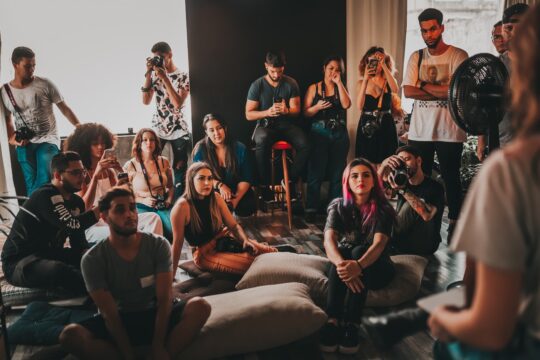How to change habits and improve the quality of your life

The quality and satisfaction with our life is determined by the quality of our habits. All of us have goals and dreams that we hope to achieve someday, some want to become millionaires by their thirties, others want to lose some weight before summer, others want to progress in their career. But these goals will remain just in our head and never materialize if don’t know how to change the habits that keep us separated from our goals. Nothing is more impactful in our attempt to improve the quality of our future life than our habits.
Success is often seen as the product of discipline and willpower, while the role of good habits is often overlooked. This is an unfortunate mistake. In fact, habits are essential to success and productivity, as we will see in this article.
As Brian Jeffrey Fogg (American Social scientist) puts it:
“If you pick the right small behavior and sequence it right, then you won’t have to motivate yourself to have it grow. It will just happen naturally, like a good seed planted in a good spot.”
Behind every successful person lies a web of good habits, which have been developed and strengthened over a lengthy period of time.
What are habits?
It’s a seemingly simple question, but there’s a lot of confusion surrounding what habits are, what habits aren’t, and how they work.
Habits are ritual behaviours, which can be performed with little thought and effort. They are what you repeatedly do daily, like an algorithm that runs in the background and occupies your waking time. According to a study conducted by Duke University habits represent around 40 percent of our actions.
Your life, generally speaking is the sum total of your habits. How successful you are; How healthy you are; How happy or unhappy you are; How satisfied or unsatisfied you are with your current circumstances; All of this is almost entirely dictated by your habits.
How are habits formed in the brain?
A region of the brain called the basal ganglia is responsible for the creation and processing of habits. This brain area controls a range of important of functions, including voluntary motor skills, procedural learning, cognition, and emotional processing.
The basal ganglia creates habits by forming neural connections or pathways, based on repeated behaviors. The more we repeat a behavior, the stronger the neural connections and pathways become, until the behavior is consolidates as a habit. In fact, the more often a habit is performed, the more your brain gets used to it and eventually it spends less and less energy on the task at hand. This mental energy can then be used simultaneously while performing the habit with little effort.
For example: Driving a car on a busy road(which took a lot of time to learn until it became a habit) and simultaneously speaking to someone, or listening to the radio.
Why are habits useful?
Once created, habits help us conserve energy by working automatically, as you saw in the above example. When we perform an activity for the first time, our brains are fully engaged and preoccupied by the task. By forming habits, we save energy for other tasks, which allows us to achieve more. This explains why good habits enhance productivity, while giving us the freedom to engage in other activities.
What are the key components of habits?
According to Charles Duhigg, there are four key components of a habit, which forms a “habit loop”:
- The cue: a signal telling you to begin engaging in the habit;
- The routine: the behavior/action which you perform;
- The reward: received as a result of the routine;
- The craving: the thing driving your desire for the reward.
How to change bad habits?
We can change bad habits using a range of techniques based on the “habit loop” model described above. We can try to remove or suppress the “cue” that signals the bad habit, or we can try to remove or suppress the “craving”. Alternatively, we can try to change the “routine” itself.
Want to know more about these techniques? Take our online course by clicking the button at the bottom of this blog post.
How to develop good habits?
There are a number of strategies and techniques you can use to grow good habits, but the best way of growing good habits is by building keystone habits. Keystone habits are foundational habits, which influence a number of your other habits. For example, going for a run every morning is a keystone habit because it releases endorphins, increases energy, helps stabilize blood sugar and enhances your mood. These impacts make it easier to enforce habits related to healthy eating, productivity, and consistent sleep patterns.
How can we increase our chances of success when trying to change our habits?
There are a number of strategies we can adopt to increase our chances of success when trying to change our habits. Some examples include:
- Find a support person and update them on your progress, to make you more accountable;
- Find a support group with similar goals to you, to make you more accountable;
- Don’t overwhelm yourself by trying to change too many habits at once;
- Understand that changing habits takes time – you need to repeat the desired behavior every day, but change won’t happen overnight.
Do you want to learn more about habits?
Take our Free Course.
Perhaps you have a bad habit you want to quit, or perhaps you’d like to enhance your productivity by building better habits?
Or, maybe you just want to geek out and learn more about how habits work?
Well, you’re in luck – our fascinating online course has got you covered.
Our course is grounded in the latest science and research on habits. It provides a basic understanding of what habits are and how they work, but it also provides techniques and exercises that you can use to banish bad habits and build good habits. The course is designed not just to inform, but to help you put strategies into practice, so you can improve key areas of your life.
We walk you through techniques and exercises on a step-by-step basis. We give you plenty of advice about topics like motivation and willpower, to make sure you stay on track with your goals. Finally, we walk you through the common mistakes people make when they try to change their habits, to make sure you don’t fall into the same traps.
Course structure
The course consists of 10 easy-to-read lessons, each taking one day to complete. A single lesson should take approximately 5 minutes to read and complete (although students may choose to spend longer on some exercises).
Please note that you do not need any prior knowledge about habits (or the science surrounding them) to benefit from this course.
Take the free course online “How to master and change your habits”
Please click the button below to begin this insightful course, we can’t wait to share it with you.
See you at the first lesson!




